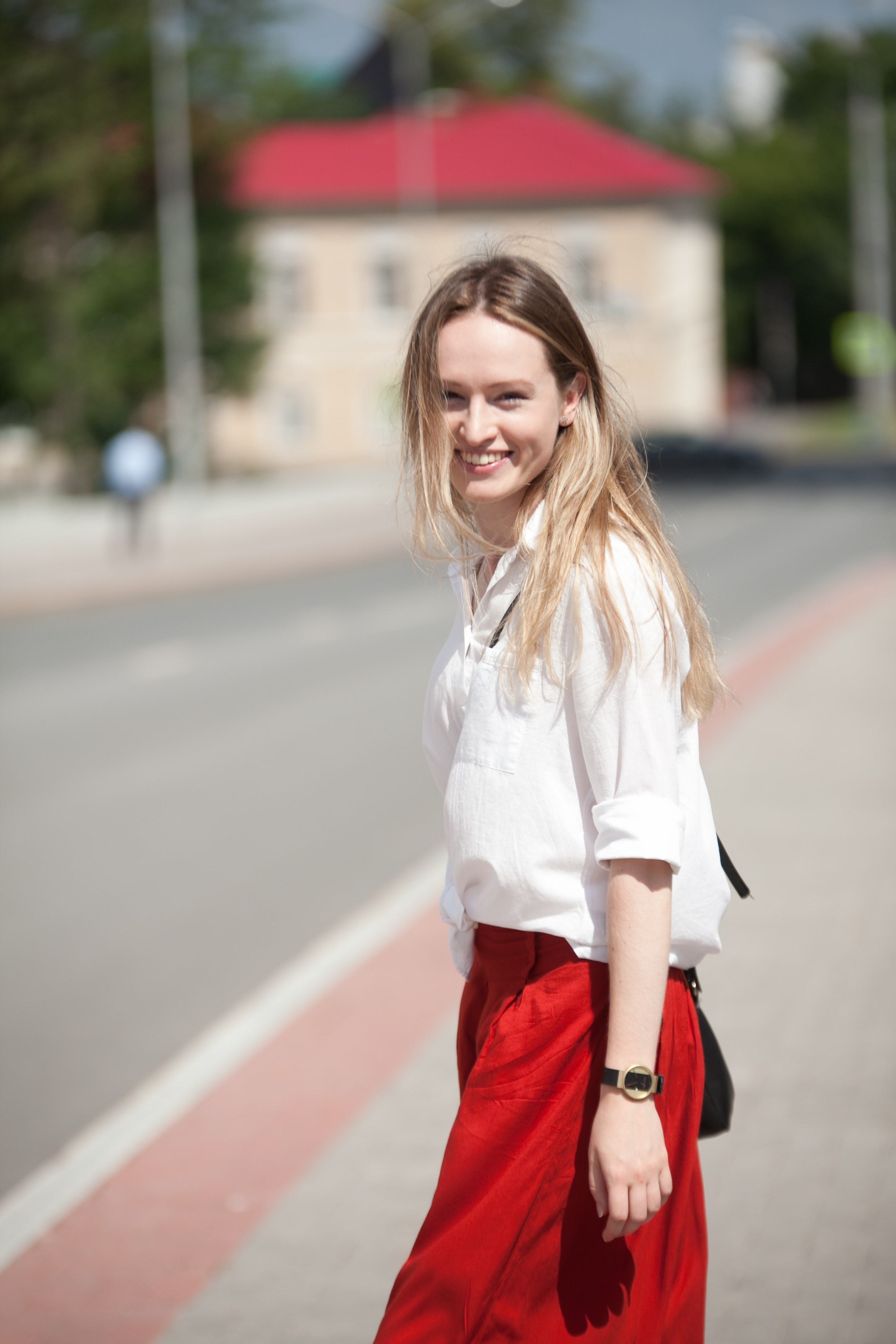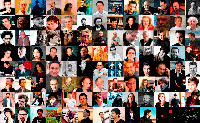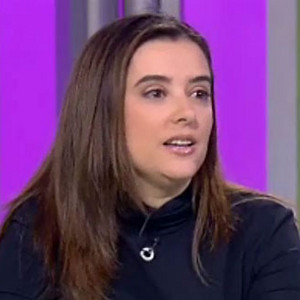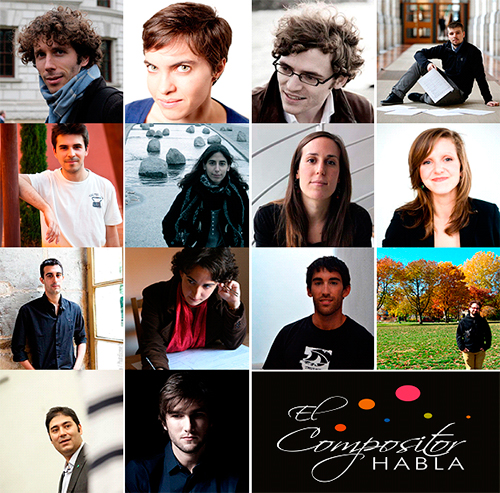Entrevistas
Elena Rykova | «I am not only an artist, I am a woman artist and I am a woman»
05/01/2021
Entrevista. Elena Rykova es una joven compositora rusa afincada en los Estados Unidos que seguimos en El Compositor Habla con mucho interés desde hace años. Una artista multifacética, original, que siempre tiene algo nuevo que decir. Hemos hablado con ella y esto es lo que nos ha contado.

1.Ruth Prieto: Who is Elena Rykova and which characteristics define you best?
Elena Rykova: It’s interesting you ask. It’s true that whenever someone asks me who I am, by default I say “I am a composer” or “I am an artist” but we are so many other things as well.
«I guess people feel attached to their professions, because they give them a sense of meaning, weight or significance in this world, where we want to matter, to leave a trace behind. At times this desire can also become quite burdening»
Several years ago, I came across the idea of anonymity contemplated upon in the book of Joan Miró “I work as a gardener”. There he writes (in the English translation of the book):
“We must move towards anonymity. Anonymity is always a rule in great periods. And today, we’re increasingly aware of the need for it. But at the same time, we are aware of the need for an absolutely individual gesture, completely anarchic from the social point of view. Why? Because a profoundly individual gesture is anonymous. Being anonymous allows the universal to be attained, I feel sure: the more local anything is, the more universal it is.”
I love these thoughts: the more time goes by, the more I think about them, and the more they think about me.
In the past five years, I became aware of a core role I either misunderstood or disregarded previously: I am not only an artist, I am a woman artist and I am a woman. As much as we want to be or think “beyond gender”, I am afraid the two still go together. I also realized how much of “I am afraid” was hidden inside, and this fear also has a voice, even a face or many faces, depending on the situation and circumstances. So, I came to realize I have a lot of parts, as any person does, and each of them has its own voice. I discovered that some of those voices were silenced for many years by people and circumstances; they are still afraid to speak at times but nevertheless, each of them has an important story to tell.
By learning to listen to myself, by means of introspection, I began to notice that my relationship with music started to change as well. Most importantly, my listening has changed. I’ve always been a very visually guided person but this internal daily work truly opened my ear.
Going back to your question, I’m not sure whether there is anything defining me but if there is, it will certainly change over time as well as everything else does, and I will definitely work for it. Change in many different ways is my main hope for a better future.
2. R.P.: What inspires you as an artist?
Elena Rykova: A lot of various things, people, events, books, other music, other cultures and of course, art. Inspiration is unpredictable but there is certainly one force that can evoke it, this force for me is movement. In my case, it would be something very literal: from getting up from my chair and starting to move around the room, letting the body express itself (following the philosophy of gaga movement language developed by Ohad Naharin), to going out in an unusual direction and making a change – doing something new, something I haven’t yet done today in order to surprise myself, to find this moment of “shock” – be it a branch of a tree, a certain light or color, maybe a sound – anything that make me startle even for just a second. In order to find it, I have to make a move, to do something that is out of my usual routine, and that will stir the flow of thoughts in a new direction launching my creativity. I am far from being a person who can work well by condemning myself to a three-hour session at my desk that would sound like a punishment to me. That is far from how my creative ecosystem works.
Elena Rykova: It’s interesting you ask. It’s true that whenever someone asks me who I am, by default I say “I am a composer” or “I am an artist” but we are so many other things as well.
«I guess people feel attached to their professions, because they give them a sense of meaning, weight or significance in this world, where we want to matter, to leave a trace behind. At times this desire can also become quite burdening»
Several years ago, I came across the idea of anonymity contemplated upon in the book of Joan Miró “I work as a gardener”. There he writes (in the English translation of the book):
“We must move towards anonymity. Anonymity is always a rule in great periods. And today, we’re increasingly aware of the need for it. But at the same time, we are aware of the need for an absolutely individual gesture, completely anarchic from the social point of view. Why? Because a profoundly individual gesture is anonymous. Being anonymous allows the universal to be attained, I feel sure: the more local anything is, the more universal it is.”
I love these thoughts: the more time goes by, the more I think about them, and the more they think about me.
In the past five years, I became aware of a core role I either misunderstood or disregarded previously: I am not only an artist, I am a woman artist and I am a woman. As much as we want to be or think “beyond gender”, I am afraid the two still go together. I also realized how much of “I am afraid” was hidden inside, and this fear also has a voice, even a face or many faces, depending on the situation and circumstances. So, I came to realize I have a lot of parts, as any person does, and each of them has its own voice. I discovered that some of those voices were silenced for many years by people and circumstances; they are still afraid to speak at times but nevertheless, each of them has an important story to tell.
By learning to listen to myself, by means of introspection, I began to notice that my relationship with music started to change as well. Most importantly, my listening has changed. I’ve always been a very visually guided person but this internal daily work truly opened my ear.
Going back to your question, I’m not sure whether there is anything defining me but if there is, it will certainly change over time as well as everything else does, and I will definitely work for it. Change in many different ways is my main hope for a better future.
2. R.P.: What inspires you as an artist?
Elena Rykova: A lot of various things, people, events, books, other music, other cultures and of course, art. Inspiration is unpredictable but there is certainly one force that can evoke it, this force for me is movement. In my case, it would be something very literal: from getting up from my chair and starting to move around the room, letting the body express itself (following the philosophy of gaga movement language developed by Ohad Naharin), to going out in an unusual direction and making a change – doing something new, something I haven’t yet done today in order to surprise myself, to find this moment of “shock” – be it a branch of a tree, a certain light or color, maybe a sound – anything that make me startle even for just a second. In order to find it, I have to make a move, to do something that is out of my usual routine, and that will stir the flow of thoughts in a new direction launching my creativity. I am far from being a person who can work well by condemning myself to a three-hour session at my desk that would sound like a punishment to me. That is far from how my creative ecosystem works.
«Figuring out my own system is also a way of listening, connecting inwards with outwards.»
3. R.P.: What are your musical roots, real or imaginary?
Elena Rykova: The most important musical connection to the past, as I’ve come to realize not long ago were my lessons with my piano professor Lev Frank back in Ufa, where I grew up. We would play the listening game (or a tuning game for ears): in the beginning of each lesson he would tell me to pick a note to play but before playing it I had to imagine its resonance. Only after I had it in my mind precisely was I allowed to play the note. He believed that only if you imagine the resonance well enough, you will play the note with a perfect touché; that it is not about the position of a finger so much but it is about the sound it evokes. The cause and effect in this exercise were reversed and that was partly the magic of it. Before I played a note, I also pressed down the right pedal opening the piano up, for it to be ready to vibrate as much as possible, and after the note was out in the open, we would sit and listen to it until the very end of its resonance – and here is the terrain where music, psychology and philosophy would meet: one of us would still hear the resonance, for another one it would already disappear. It is so fascinating to think of when exactly the sound disappears, since the moment between our ability to still hear it and us holding the vanishing sound in our memory is very ambiguous. Physically, the sound seems to never really disappear once being brought into existence in a room – it would asymptotically decrease forever.
«This idea of a sonic resonance existing on the border between real and imaginary has been feeding my imagination for years and by now turned itself into a precious obsession.»
4. R.P.: In this personal "inventory" that we all have of noises, sounds, music and songs, what can you tell us about your soundscape?
Elena Rykova: My soundscape always exists in the context of a sound world that always carries an invitation for a listener to inhabit it and for a performer to explore. They can vary from one piece to another but they all share openness, vulnerability, ability to expand, playfulness, attention to the details and changing circumstances. Each world has a story behind, a story of its creation, has its own myths and legends, sometimes maps. Those worlds are complete, they exist beyond me and a piece is only a glimpse into them. To write a piece for me is every time like initiating a search for a new understanding of another universe, even if it is just a tiny local discovery, I believe that at the end it serves a more global purpose. For me this somehow connects to Miró’s ideas of anonymity that brings peace to mind.
5. R.P.: Do you have a composer of reference or someone who made special impression on you as a composer and as an artist?
Elena Rykova: Of course, I have a lot. They are not only composers, they are visual artists, writers, and friends. Some of those are: feminist writer Rebecca Solnit, anthropologist and writer Tim Ingold, artist William Kentridge, composers and friends Marina Poleukhina, Alexander Chernyshkov, Vladimir Gorlinsky María Korol and many other inspiring musicians and human beings.
In my early years as a musician, in my teen years, I remember I was obsessed with classical piano music and I often used to confuse this strong feeling of identification through a work of art with falling in love. That feeling of being moved by music, by specific interpretation was so strong! These days it still happens sometimes but much rarer and not necessarily by means of music, but music is certainly one of the most direct channels to reach to people and that is what makes it particularly special, I think.
6. R.P.: What does silence sound like?
Elena Rykova: Silence, in a sense of quiet, to me sounds like a perfect balance, stillness, no movement or movement in zero gravity. Silence is always a mystery. It’s not about what is absent but what is hidden inside, what is beneath it. So, in this way, silence also is a form of suspense.
7. R.P.: When you compose do you imagine soundscapes, conglomerates of sounds that you can transform into written music or it is more a starting point with a melody, rhythm, visual element?
Elena Rykova: Each piece is different. A lot of times it used to be a process of translation of ideas and visual images into sound but in the past several years it is more and more about the sound itself and about unraveling, discovering the next sound from the previous one.
8. R.P.: Can you define contemporary and in which way Elena Rykova is a contemporary composer?
Elena Rykova: I believe, contemporary art is the art that is able to suggest another way of looking at things, give a new perspective, a comment on- or an alternative to the world we live in.In my works I make discoveries for myself, with each new creation. And I know people out there who find my music relevant and actual, who find guidance and inspiration in it. This all is reassuring and is partly a reason to continue making music for me.On blue days, when nothing seems to work or give solace or hope, many times the only force that is able to revive me is my own music. I love listening to my own pieces, they remind me of who I am, when I seem to forget. When there is art, music, books – anything that has a force to remind us of something profound, help us to feel the gravity or show us how to fly again, give us inspiration or strength – to me it is beyond contemporary, it is something exceeding the dimension of time.
.jpg)
9.R.P.: What is your main obsession as a composer when you are working?
Elena Rykova: As a composer I absolutely need to be able to hear and recognize the necessity of existence inside the sound and to understand its agency: how it needs to appear, when it wants to end, how it has to transform and where it leads. It is like being a biologist, geologist, physicist and sometimes even a chemist at the same time, studying new species of sounds, their trajectories and figuring out where they came from, how and what they are like, what happens if several of those are put together or let go free. I always do a lot of practical research and make recordings and it is important for me to not overdo the analytical part prior to composition, I usually analyze the work months after it’s done. To see what is really inside I have to have some distance form it.
«The more time I spend with the work, the more time I will need before I can look at it objectively (to the degree we can).»
10. R.P.: How do you go about putting together a new work, could you describe your creative process?
Elena Rykova: It would usually take me about a month to understand where to start. I would have to put myself in motion and break the routine quite a lot in order to find the flow of thought, play with the instruments, record my sessions. Then I would try out different things in DAW, sometimes allowing myself to treat my recordings like a sound material for a tape piece, even if I am composing an acoustic piece. After a while, I start to see a clearer picture of what I might need, which sonorities I will explore and I start connecting the pieces together. Usually I would write it down from the beginning to the end but sometimes I change things up as I go back, add or remove some parts. While working I keep the instruments close, to check the sound in order to notate it (or the way it’s being produced) as precise as possible. A 10-15 - minute piece would take me on average 3 months or so to complete but during the pandemic I’ve become much slower and I actually enjoy the process a lot. My schedule this year allows me to work, say, on a section of a piece and then leave it for a day or two, and then come back and listen to it with fresh ear. In this way I gain some distance and I’m able to hear immediately whether anything needs to be changed and what precisely; if the section is complete, I move to the next phase and start translating it onto paper.
11. R.P.: How do you see the contemporary music scene today, in these difficult times? Is it difficult to carry out avant-garde projects in the time of crisis?
Elena Rykova: I think we all have learnt a lot during the months of pandemic. I think we’ve learnt how to achieve the maximum results with the minimum available means and tools. No doubt, the crisis hit us all, and some of us are way more privileged than the others, can just stay and work from home and wait for the vaccine, while the others still have to go out to work in order for the life to continue. Front-line workers are undoubtedly the heroes of our time. Of course, it is difficult to proceed with live-concerts in this situation, and as we’ve seen, many projects were either postponed or cancelled. A lot of alternative options were found and developed, like streaming on social nets, Zoom, premiers on YouTube etc. Still, most of us are hungry for live shows, live energy, direct contact with each other, with public – all this can’t ever be replaced.
12. R.P.: What would you like to do as an artist that you have not been asked to do yet?
Elena Rykova: I would like to write an orchestra piece, I think it would be a wonderful experience for me, because I see it as a challenge to my compositional and notational approach in some way and I love challenges. I would also like to collaborate and work on theater plays and maybe even film. I work a lot with other artists on interdisciplinary projects but the final format is usually more of a concert shape, even if the performance space itself is alternative. I love working with other people and trying various forms and more importantly creating new ones that would expand the reality of my sound worlds, and I love sharing those. Another thing that I would like to do is to collaborate closely on a computer game (or some virtual reality art project) and design the whole sound world for it. In case of a game, it would have to be very special and elaborate, probably more oriented towards a world-building, with its own myths and legends, unknown territories, hidden stories behind, where music would be the essential part of the experience and possibly influence the creation of the visual part.
13. R.P.: How do you imagine “concerts” in the XXI century?
Elena Rykova: Well, we already lived through the fifth of the century and I think we are slowly moving in the right direction. I hope that more than anything, the public for new music will grow in number and more people of various generations and backgrounds will be open and curious about contemporary music. Furthermore, as much as I love Europe, I also hope that there will be other alternative gravity points on the map for new music to flourish and develop with as much energy, support and funding as it happens, for example, in Germany, so that musicians and artists don’t have to move from their home countries and continents in order to see concerts, be (and feel as) a part of the new music community and get paid for their work. I hope that more women will be featured in concert programs and more women will be in charge of those, as well as ensembles, institutions, academies and jury panels.
14. R.P.: Do you think it is still necessary to make women visible in new music context?
Elena Rykova: Absolutely. Always. We have to work for it. We have to do our internal work in order to understand all unfortunate misbeliefs that are planted in our heads as we grow up and the legacy burdens that are given to us by default – this work is fundamental to any further societal change. And we also have to make sure women are encouraged and supported in any situation, that they always have room for their voice to be heard and that their voice matters, and not only for women but for all people of BIPOC and LGBTQI+.
15. R.P.: What could we do to make this musical world more inclusive?
Elena Rykova: First step, I believe, is to become aware of the wrongness, which leads to the next step – curiosity and self-education. As we ourselves learn more about the problem, we acquire knowledge and new understanding. And then we just need to share it with each other, and whenever we can – make a change happen: to choose in favor of the new solution instead of the obsolete. The seed of change is inside us, we just need to help it germinate and grow, which of course requires some honest work along the way.
16. R.P.: What are you working on now?
I am currently writing a long piece for six electric guitars. It was supposed to be premiered last summer in Darmstadt but was postponed by a year, so I decided to use this opportunity to slow down and take a new approach towards the piece. I’ve been working on it for almost 4 months now and I already feel that this piece is a profound revelation for me in many different ways. I expect to spend one or two more months on it. This year I’ve learnt that time is the most precious resource. I realized I really hate running from one deadline to another, it is really unhealthy and that what truly makes me happy is the possibility to stay with one piece as long as it needs.
Another project I am a part of is an interdisciplinary piece, performance and installation that my long-term collaborator and friend, visual artist María Korol and my good friend dancer, scientist and environmentalist Anna Riley-Shepard are developing together with Jean-Philippe Wurtz and ensemble Linea. Both projects are very exciting and I really hope that the world will heal as soon as possible and both pieces will come to life and see their public as we plan.
Elena Rykova
December 25, 2020.
December 25, 2020.
las fotos de Elena son de Nikolay Kritsky y han sido facilitadas amablemente por la compositora para acompañar a esta entrevista.
More information about the composer on her personal website Elena Rykova
More information about the composer in hes profile on our website ECH-Elena Rykova
Photo credit: Nikolay Kritsky
Biblioteca
Destacamos ...
Nueva Sección Directorio
dedicada a la promoción de compositores, intérpretes, instituciones y editoriales.

dedicada a la promoción de compositores, intérpretes, instituciones y editoriales.



